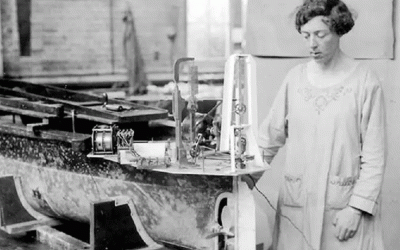Warship Technology: October 2016
Amid growing concerns about the shrinking size of the Royal Navy fleet, the Type 26 ‘Global Combat Ship’ programme looks set to be delayed even further amid concerns about the cost of the project. Concern has also been expressed about the effect on jobs at the yard that will build the vessels – BAE Systems in Glasgow, Scotland – and on defence capability.
The delays with the new frigates – to which a commitment was made by former Prime Minister David Cameron before the Scottish independence referendum in 2014 – follow on the heels of serious problems with the Royal Navy’s new fleet of Type 45 destroyers. For more information about the latter, see the article on pages 13-16 of the May 2016 issue of Warship Technology. In June, the defence committee in the House of Commons was told that the Type 45 destroyers “might break down” if sent to operate in the high temperatures of the Middle East.
Giving evidence to the committee, Tony Douglas, the UK Ministry of Defence’s (MoD’s) official responsible for military equipment, said he could not give a time or date when the Type 26 frigate project would be approved. “It could be next year.” Harriet Baldwin, a junior defence minister, told the committee: “We do not know yet.” The latest delays in the frigate project prompted SNP MSP Bill Kidd to write to the government in Westminster “demanding clarity” on the government’s intentions. For his part, the UK’s Secretary of State for Defence, Michael Fallon, said: “we are still negotiating the contract” (with BAE Systems).
In supplementary written evidence submitted by the MoD about the project, the MoD said: “We remain in discussion with BAE Systems to establish a production schedule for the Type 26 and the two Offshore Patrol Vessels [OPVs] that will precede it, while achieving best value for money for the taxpayer. Until those negotiations are complete, we will not be in a position to make our main investment decision and set a schedule and cost for the programme. No date has yet been fixed for the start of manufacture. The date of the start of manufacture will be determined by the work we are doing with BAE Systems to agree a production schedule that reflects the outcome of the Strategic Defence and Security Review (SDSR). This work is ongoing and will take a number of months to complete. The dates for the completion of each ship are necessarily dependent upon the agreed date for the start of production.”
Asked about the implications of the delay on the decommissioning or extension in service of the Royal Navy’s Type 23 frigates, and whether the intention remains that one Type 23 will be decommissioned when each Type 26 comes into service, the MoD noted that, in planning the changes to the scope of the Type 26 programme announced in the SDSR, it took account of the impact on the current in-service ASW variant Type 23s. “The investment in recent years to extend the life and sustain the capability of the Type 23 frigates will ensure that the Royal Navy continues to provide a world-beating ASW capability until the Type 26 enters service,” said the MoD. “Ongoing and future planned improvements include new radar, missile and sonar systems, upgraded boats, improved command and control systems and more efficient power generation equipment.”
Asked about the government’s assessment of the impact of the delay on the skills base and apprenticeships in the affected shipyards, the ministry said: “Ensuring that the skills required to deliver the Type 26 are in place is a key factor in the successful delivery of the programme and, in the longer-term, is crucial to our strategic aim of placing UK shipbuilding on a sustainable footing. The SDSR committed the government to the construction of an additional two OPVs ahead of commencing manufacture of the Type 26. We have always been clear that, while providing valuable capability for the Royal Navy, these OPVs help to sustain shipbuilding skills and make sure that the entire operation of building a warship, from initial fabrication through to testing, is exercised and practised. OPVs 4 and 5 represent a continuation of this successful process and provide the opportunity to further embed improvements ahead of commencing manufacture of the Type 26.
“While the number of apprenticeships in the shipbuilding industry is primarily a matter for the contractors concerned, the MoD recognises the importance of apprenticeships in developing the essential skills needed by industry to deliver defence outputs. We are aware that over 150 apprentices are due to enter the workforce at BAE Systems on the Clyde before 2018.”
Responding to a question about the timetable for the design and construction of five new, lightweight vessels that are also to be built, and whether they will be built before, after or alongside the Type 26 programme, the ministry said: “The General Purpose Frigate Programme has just begun its pre-concept phase activity. This work is in the very early stages and it is too soon to say what the acquisition strategy or procurement timetable will be.”





